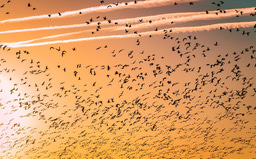
Since the FAIR Principles were first published in 2016, they have impacted greatly on the Open Science movement, including data repositories, funder policies, and researcher practice. The drive to make data Findable, Accessible, Interoperable and Reusable is underway, with initiatives such as GoFAIR providing practical guidance the interpretation and application of the principles to researchers’ own data.
Even before the FAIR Principles were published however, data sharing in the humanities was seen as potentially more challenging than in sciences. Specific challenges include copyright of the source material (which may not be owned by the researcher); and the creation of less “traditional” data outputs, such as annotated editions, audio-visual material or performance. In spite of this, data sharing in the humanities is becoming more commonplace over time.
Acknowledging the specific issues which humanities scholars face in sharing their data, the ALLEA e-Humanities working group has drafted “Recommendations for Sustainable and FAIR Data Sharing in the Humanities.” These recommendations are now available for community review, and the draft is open for comment until July 15th 2019.
Based on the data team’s experience in working with humanities data, and training researchers in data sharing we have made some additional suggestions for the draft, including aspects of data management planning, digitisation of primary resources, and copyright and licensing. We look forward to reading the final recommendations, and encourage anyone working with humanities data to review the current version and add their thoughts: http://bit.ly/ALLEADH.
Image credit: RhondaK Native Florida Folk Artist on Unsplash





Please sign in or register for FREE
If you are a registered user on Research Communities by Springer Nature, please sign in